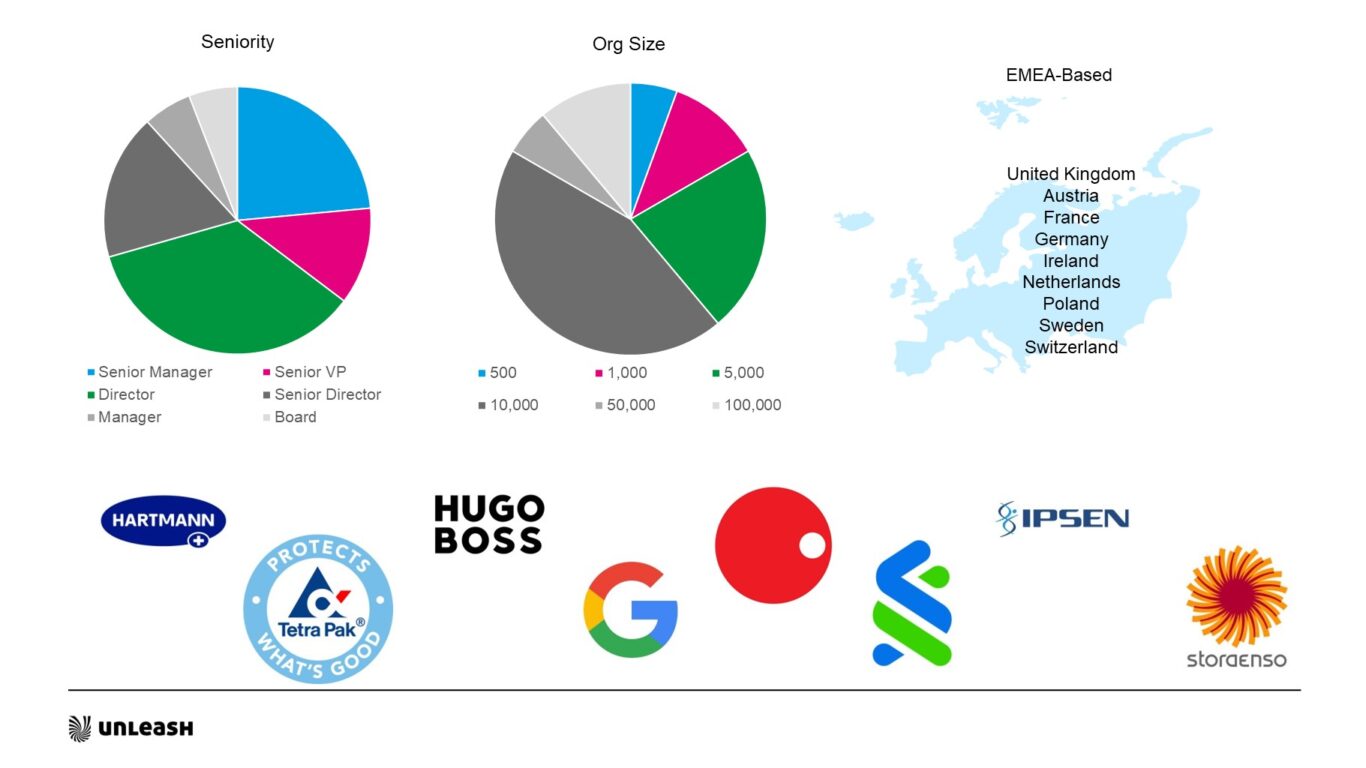Manager effectiveness – the last mile for HR?
In this exclusive roundtable HR leaders discussed challenges around manager effectiveness, and whether data could be a solution.
Why You Should Care
Effective managers are hugely beneficial for retention and employee engagement.
But manager effectiveness is easier said than done - could data be the solution?
In this exclusive roundtable HR leaders explored this topic, and shared best practice.
“HR can’t be everywhere – they can’t always be in the room where it happens” – that’s how Paul Rubenstein, Visier’s chief people officer, kicked off a recent exclusive UNLEASH webinar.
In this context, HR teams have to rely on managers to look after their people, as well as drive employee engagement and productivity.
Having effective managers is well-known to be good for business bottom lines – managers have a huge impact on worker attrition; Rubenstein noted that even if people work for sub-par organizations, if they have a great manager, they are more likely to stay in their role.
Of course, manager effectiveness is much easier said than done.
As our roundtable discussion highlighted, the main challenges HR leaders are facing around manager effectiveness is that these managers are overloaded – their roles are not just to be leaders, but they are now player coaches.
Their job is also only getting harder amid all the digital transformation and disruption going on – they are having to manage the business as usual, but also support employees through ongoing change (which can see a lot of pushback from employees).
Data as a solution to manager effectiveness
The discussion concluded that managers have one of the hardest jobs in organizations.
However, one solution to make their lives easier and help them better engage their workforce is for HR to put data into their hands.
This can have huge financial benefits – a recent Visier report estimates that democratizing access to people data could drive $400 million in cost savings for large organizations.
This was primarily due to positive impacts on retention, work-life balance and team development.
However, as the roundtable discussion showed, the issue is that often managers do not see the value of having access to the data, and they are unsure of what actions to take.
HR needs to ensure the dashboards and analytics offered to managers are designed with them in mind (rather than what HR thinks is interesting).
One of the roundtable participants suggested this could be solved by HR involving managers in data and analytics decisions and planning earlier in the process.
All of this can help managers cut through the noise and not get overwhelmed by all the data on offer – they need to be able to use the insights from the data to spot trends before they become problems.
At the end of the day, the process of looking at data needs to be as simple as possible for busy managers.
To close off the discussion, Rubenstein called on HR leaders to start experimenting with how to empower their managers with data so they can “fight the good fight”.
HR Leader Attendee Demographics

Why join a UNLEASH roundtable?
Our exclusive virtual Roundtables are designed to explore where HR leaders are focused now, key challenges, and prioritizations for the rest of the year. We’ll dig into what matters most when planning for what’s next and equip you with your future strategy. You’ll be joined by senior HR practitioner peers, allowing an opportunity to discuss personal experiences of challenges and wins, providing the ability to benchmark and reconsider current strategies and tech together.
Check out our upcoming events here: HR Roundtables
Sign up to the UNLEASH Newsletter
Get the Editor’s picks of the week delivered straight to your inbox!

Chief Reporter
Allie is an award-winning business journalist and can be reached at alexandra@unleash.ai.

